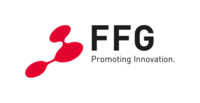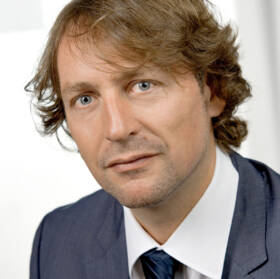The project develops an overall concept for night trains that can also be used efficiently in daytime traffic.
Background
Night trains are a sustainable alternative to air travel for European medium- and long-haul routes. However, they are rarely economical to operate because their specific equipment limits the number of passengers that can be transported. The equipment makes them also unattractive for daytime traffic and this results in unproductively long idle times for couchettes and sleeping cars. Vehicle concepts that are suitable for both day and night service could help to alleviate the problem. However, this is a trade-off, because trains that are highly efficient in daytime service do not meet the comfort requirements of night-time travellers, while using conventional night trains during daytime traffic is not economical, as the number of people that can be transported is too low.
Project content
Night trains account for about 20 percent of the total revenue of ÖBB-PV AG and operate up to twelve hours per day on selected routes. Day trains, on the other hand, run for about 20 hours a day between five and one o'clock at night. In addition, there are significant differences in what services passengers expect. Daytime travellers want to work and talk on the train, as opposed to night-time travellers, who are looking for rest and relaxation and spend much more time on the train. On top of that, night trains ask for other standards than day trains with regard to accessibility. The TANA project is aimed at incorporating all these different requirements into a viable concept, that allows night trains to be used during daytime. Introducing of multifunctional equipment elements, developing new vehicle systems and devising usage scenarios are important steps on this path.
Goals and methods
The overall objective of the project is to increase the efficiency of rail traffic by developing concepts that allow night trains to be used economically in daytime traffic. To this end, the following goals are to be reached:
- Determining the needs of day- and night travellers and what kind of equipment it requires for using night trains during the day (including gender & diversity aspects and aspects of accessibility).
- Identifying customer demands that are not satisfied by current offers in the railway sector, but that can be addressed by a day/night train.
- Developing evaluation standards (benchmark) for rail equipment concepts. For this, promising concepts that proved themselves in international train traffic and in other modes of transport (e.g., truck cabins, mobile homes, shipping) are tested.
- Devising room concepts that allow an efficient use of night trains in daytime traffic on the basis of simple adaptations (e.g., high-quality folding seats in sleeping compartments).
- Defining deployment scenarios for innovative night train concepts in daytime traffic.
- Formulating recommendations on how to modify and refurbish trains in order to broaden their range of usage (within given technical and legal framework conditions).
Result
The TANA project works out strategies for an efficient use of night trains in daytime traffic. This not only includes considerations on how to redesign existing equipment but also the creation of new room concepts. In addition, overall train concepts are developed that allow to quickly regroup railcars and make them available for day trains. Questions such as where and how baggage can be stored, how accessibility can be guaranteed, how high standards with regard to ergonomics, comfort and health can be ensured, as well as aspects of gender and diversity are being considered. The project is not only intended to make rail operations more economical and create new offerings for passengers but also another step to achieve environmental and climate targets.
Mobility of the Future is a research, technology and innovation funding programme of the Republic of Austria, Ministry of Climate Action. The Austrian Research Promotion Agency (FFG) has been authorised for the programme management.
You want to know more? Feel free to ask!
Academic Director Rail Technology and Mobility (BA)
Academic Director Rail Vehicle Technology (BA)
Head of Research Institute
Carl Ritter von Ghega Institute for Integrated Mobility Research
Deputy Academic Director Rail Technology and Management of Railway Systems (MA)
Department of Rail Technology and Mobility
- netwiss
- Dr. Elisabeth Oberzaucher
- Fachhochhschule Joanneum GmbH
- HILFSGEMEINSCHAFT DER BLINDEN UND SEHSCHWACHEN ÖSTERREICHS
- Molinari Rail GmbH
- moodley industrial design GmbH
- Siemens, Mobility Austria GmbH
- Zürcher Hochschule für Angewandte Wissenschaften, School of Engineering [Schweiz]



